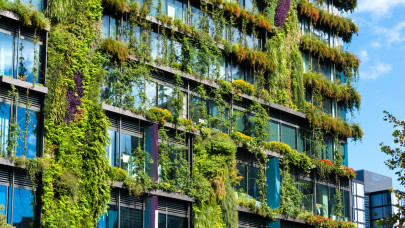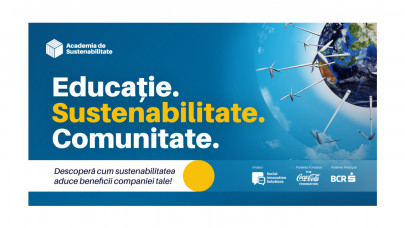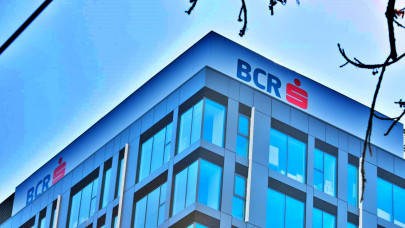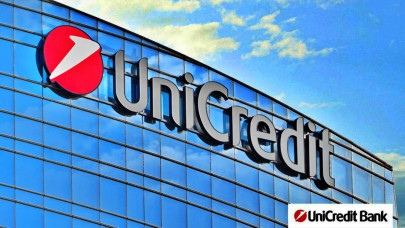The first panel discussion of Romania ESG Forum 2023 gathered leading lenders who discussed how they approach the topic of ESG.
Cristian Nacu, Senior Country Officer for Romania at the International Finance Corporation revealed that in the last 3 years, more than 75% of the IFC's financing activity in Romania has been climate-related financing. “We are the largest development institution in the world in terms of financing emerging markets and the main goal for us today is ESG and climate impact. In 2022, we had a target of a 25% of our financing to be ESG and climate financing and we reached almost 35%. This year, we are already at 47%,” said Cristian Nacu.
One of BCR's priorities is creating sustainable finance practices and sharing that knowledge with the communities. “We started this journey 2 years ago by starting a dialogue with our clients. We talked a lot about sustainability and we wanted to understand first how our clients approach the topic and what they need to learn in order to start the journey together. After that, we proposed some solutions and types of financing. Over the past 2 years, we have financed more than €200 million in green loans. More than 50% goes to green buildings, around 30-40% goes to renewables and a good surprise for us was to find an appetite for other types of financing, such as energy efficiency investments. Companies invest in new technologies, replacing equipment in order to increase energy efficiency and renovating the buildings,” said Ioana Voinescu, Head of Sustainability at BCR.
Panellists also highlighted that a very important aspect is to support infrastructure and sustainable transport, which are underdeveloped in Romania and there are a lot of things to do about it.
In 2022, the European Bank for Reconstruction and Development (EBRD) granted total financing of €709 million for 32 projects carried out in Romania, a record level since 2009, out of a total of €13 billion distributed in the countries where the bank is present. “Most of them, 61%, went towards investments in the green economy (€436 million), and 75% supported private sector companies. Green projects are projects that in essence are beneficial to the environment, with no carbon emissions. We have a clear methodology, a list of potential green risks, and the carbon transition risk, the physical risk. We look at how a client would be affected”, pointed out Andrei Svoronos, Principal Banker at EBRD. He also mentioned that renewables and the financial sector are two of the most relevant industries that meet the ESG criteria.
“In terms of climate awareness and education, we also have a partnership with the local Stock Exchange. Together we developed a set of ESG guidelines which is a very good starting platform for any company that wants to have a good understanding of the ESG concept and to tackle particular operations,” he added.
Katsiaryna Souvandjiev, ESG Funding and Innovation Lead at Raiffeisen Bank International AG added interesting insight by revealing that companies often struggle with the amount of data required for obtaining a green loan. ”The synergies we create are important. In Austria, we have a good example of how banks came together to try and decrease the burden of data reporting for companies. We have the OeKB > ESG Data Hub in Austria which supports companies in preparing relevant sustainability data in a standardized and transparent way,” she stated.
The panel also touched open the topic of regulation which can be confusing. “I like to think that regulation should be something that is helping businesses and not holding them back. Recently we have seen a lot of new reporting requirements and limitations but I don't feel like we need more regulation, rather we need to make existing regulations smarter,” Gabriel Marosi, Group Sustainability Officer at Erste Group explained.
The panel ended with the conclusion that banks put a lot of effort into promoting green financing. For many financial institutions, Romania is one of the most important countries in their portfolio in this regard.













